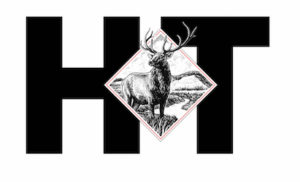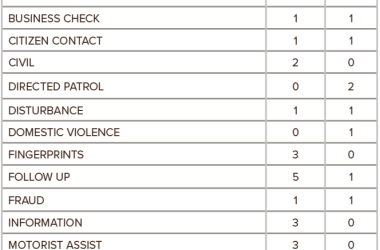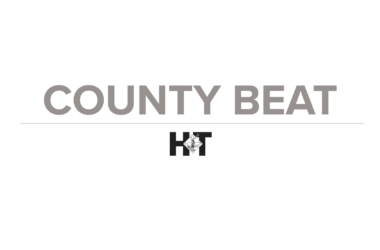RBC I On Jan. 22, as “Snowzilla” was about to hit Washington D.C. and much of the East Coast, Secretary of Interior Sally Jewell announced much-anticipated rules on emissions from oil and gas production on Bureau of Land Management-administered leases.
While the rules resemble those proposed by the Environmental Protection Agency last year, these are likely to have a bigger impact in the oil and gas fields of the West. The EPA rules only affect new and modified facilities, while the BLM regulations also apply to the tens of thousands of existing oil and gas production facilities.
It may seem odd that a land management agency is regulating pollution. Technically, though, the rules are not aimed at reducing emissions but at stopping the waste of natural gas, which clearly falls under the BLM’s mandate. Since natural gas is mostly methane, a particularly potent greenhouse gas with health-damaging and ozone-producing volatile organic compounds mixed in, conserving the commodity also reduces pollution.
The rules, which will impact some 100,000 onshore oil and gas wells, target natural gas loss from venting and flaring, leaks, pneumatic devices, storage tanks, drilling and completion and liquids unloading. Once in effect, the regulations will reduce emissions of methane by some 166,000 tons per year and of volatile organic compounds by 400,000 tons per year, according to BLM estimates. Environmental groups, many of which have been pressuring the BLM to enact such regulations for years, generally praised the rules.
Oil and gas industry advocacy groups, such as the Western Energy Alliance, say the rules aren’t necessary because operators are already cleaning up their act. They point to companies like Conoco-Phillips, whose San Juan Basin facilities collectively add up to be the largest methane emitter in the United States. The company voluntarily cut emissions from those facilities in half between 2013 and 2014 (though they still remain the biggest emitter), mostly by doing some of the very same things the new rules require, such as replacing high-bleed pneumatic devices with low-bleed ones.
That case, however, also serves as an argument in favor of the new rules: It shows that complying with the new rules won’t be too onerous and, in fact, will ultimately benefit the operators since they’ll have more natural gas to sell. That, in turn, will boost royalties paid to the federal government on the commodity, much of which goes back to local communities.
And there’s another potential bonus for the natural gas industry: Complying with the rules will help natural gas regain its reputation as the “climate-friendly” fossil fuel, a status endangered by methane leaks.
Here are the main components of the new rule:
Venting/Flaring: It’s often not profitable for an oil producer to build the infrastructure necessary to capture the natural gas that accompanies the oil and pipe it to market. Instead, the producer simply vents the gas into the atmosphere—a massive source of methane emissions—or flares it, creating carbon dioxide emissions. Because the flaring or venting occurs at the well, the lost gas is often not subject to royalties. In 2013, producers vented and flared nearly 100 billion cubic feet of gas, enough to heat 1.3 million households for a year.
The new rules will ban venting, except in emergencies, and limit routine flaring to 1,800 thousand cubic feet per month per development well. Operators will be required to submit a plan for minimizing gas release from a well before drilling begins.
This will, presumably, include plans to construct infrastructure for gathering and piping the gas and should eliminate the excuse that flaring is necessary because the infrastructure to capture gas doesn’t exist.
Royalties will be charged on “avoidable” flaring of gas although the list of “unavoidable” reasons for flaring that are therefore exempt from royalties is long. The flaring limits will be phased in over three years, and there is ample room for exceptions if, for example, an operator can convince the BLM that it’s too costly to comply. The BLM estimates that the rule will reduce flaring by about 75 percent.
Leaks: The new rules will require companies to do semi-annual inspections on well sites and compressor stations. If they find leaks, they will have to do more frequent inspections. They will then have 15 days to repair any leaks they find.
Pneumatic controllers and pumps: Colorado and Wyoming have banned high-bleed pneumatic valves and required operators to replace existing high-bleed devices with low-bleed ones. The BLM is now proposing to do the same. It’s a relatively cheap way of curbing the loss of natural gas and should actually save companies more money than it costs.
Storage vessels: Vapors emanating from storage tanks associated with oil and gas production are a significant source of natural gas loss and methane and VOC emissions. For high-emitting tanks (over six tons of VOCs per year), companies will be required to reroute the vapors to combustion devices or sales pipelines. (The BLM rules do not cover large underground storage facilities such as the one at Aliso Canyon in California that has leaked massive amounts of methane in recent months).
Well maintenance and liquids unloading: In order to clean out liquids accumulating in older wells, operators will occasionally blow them out or purge them, resulting in a loss of gas. Newer technology allows the same task to be done with fewer emissions; the BLM will require operators to use best management practices to minimize gas loss.
Well drilling and completion: Large quantities of natural gas can burp out of a well during drilling and completion (hydraulic fracturing). The new rule will require operators to either flare that gas, re-use it in the drilling operation (some newer rigs are powered by “field” natural gas) or inject it back into the well. If the gas is flared, it would not count against the 1,800 Mcf per month per-well flaring limit as that only applies to post-completion wells that are in production.
Following the announcement, Erik Schlenker-Goodrich, executive director of the Western Environmental Law Center, tweeted his quick take on the rules.
He called it a “win-win-win” regulation, since it boosts natural gas supplies, helps the climate and results in higher revenue from royalties while also pointing to its drawbacks, primarily the room for exemptions. He concluded: “Bottom line, this is a good, positive—if fairly modest—proposal. Looking forward to working w/ partners to strengthen it.”





















